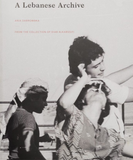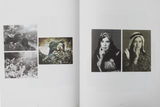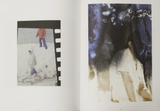A Lebanese Archive is based on a collection of archival photographs from Lebanon and the Middle East, which came into the hands of Ania Dabrowska in 2010 when she was a SPACE artist-in-residence at Arlington hostel Camden, London. It belongs to Diab Alkarssifi, a Lebanese émigré, who was living there at the time. The images were taken and collected by Alkarssifi over a lifetime: thousands of photographic prints, and negatives, including his numerous photographic assignments, images of everyday life in his home city of Baalbeck on the Syrian border and in Beirut, his student years in the early 1970s in Moscow and Budapest and, most extraordinarily his collection of found images from studios in Baalbeck, Beirut, Damascus and Cairo – photographs of society, family and friends, and Arab life in Lebanon, Palestine, Kuwait, Egypt, Syria and Iraq, that he passionately accumulated and saved. These images, all that survives of a much larger collection still hidden or lost in Lebanon, gives an intimate insight into the cultural, everyday and political history of this region, from 1993 to as far back as 1889.
It was a chance encounter that gave birth to the archiving of a huge collection, and the development of a new body of work by Ania Dabrowska, a Polish artist and photographer who has given new meaning to Alkarssifi’s collection and his photographic work. Her interpretation and arrangement of the archive with her own imagery and assemblages has led to a fascinating layering of the work inspired by their conversations on history, photography and personal memory. – much of which is published here for the first time.
Arranged as Archival Stories, Cycles, and new compositions, A Lebanese Archive comprises of photographs from the archival collection and new works by Ania Dabrowska, punctuated by short exchanges between Dabrowska and Alkarssifi on the history and making of the images and stories collected here. The project is introduced and reflected on in new texts by Ania Dabrowska and Akram Zaatari.
This book was co-published with Arab Image Foundation, and made possible with the support of the Polish Cultural Institute, Arts Council England and the generosity of Kickstarter supporters.









